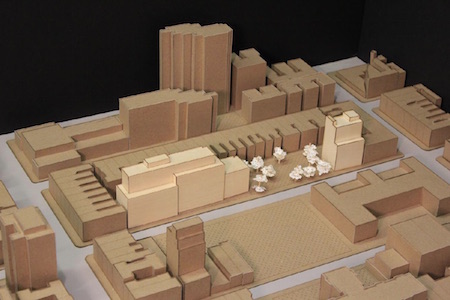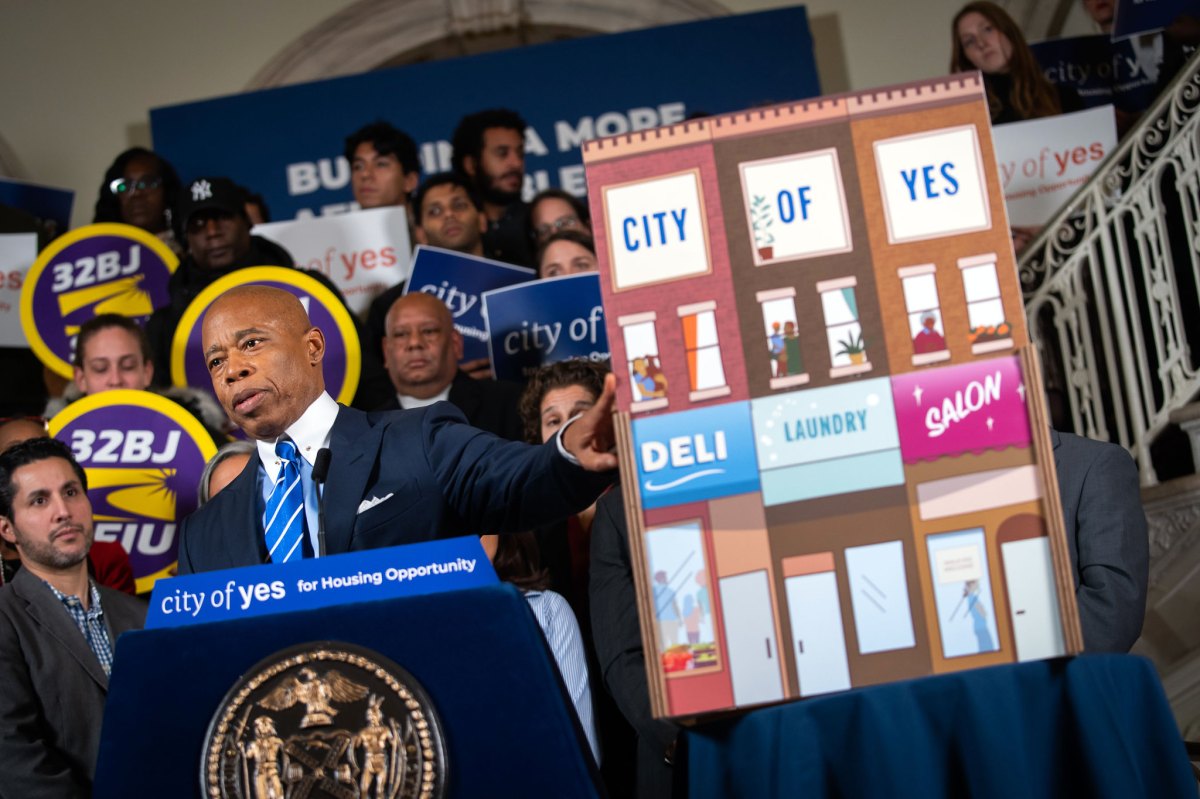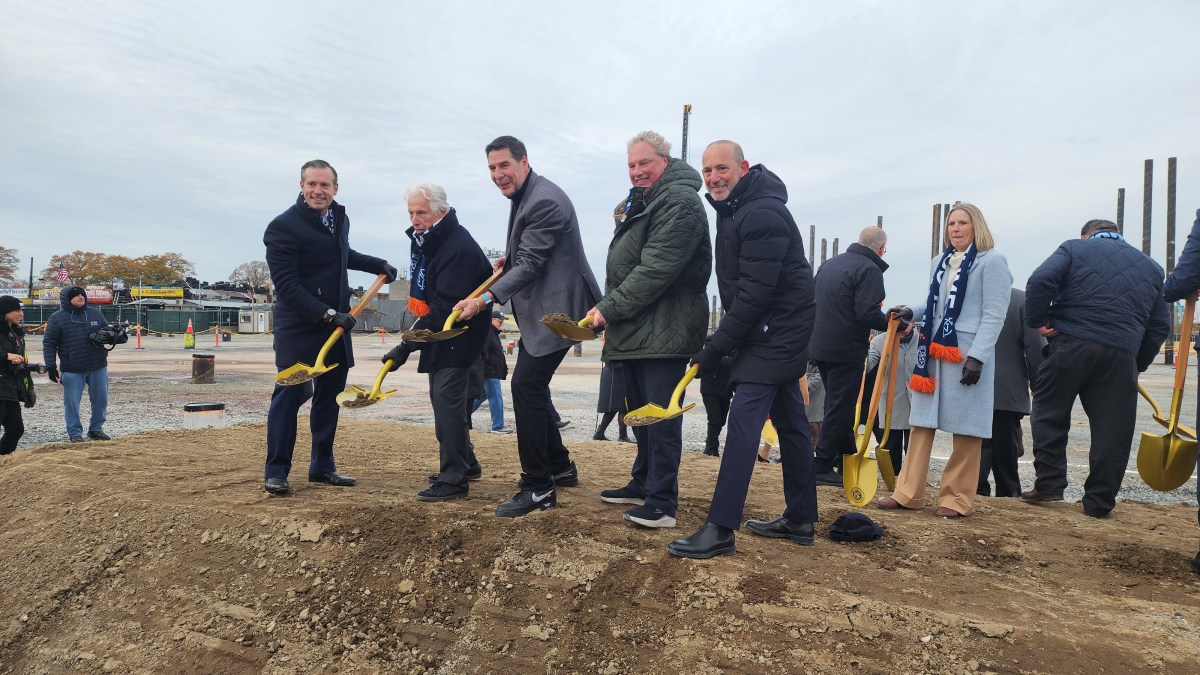
BY JACKSON CHEN | The West Side Federation for Senior and Supportive Housing, seeking approval for a proposed new affordable housing project on West 108th Street, is now committed to conducting additional research as part of a parking study that evaluated the impact of losing 675 parking spaces as the result of the development.
The nonprofit organization has been informally in front of Community Board 7’s Land Use Committee on multiple occasions regarding its project to create up to 280 units of affordable housing and increase the number of transitional beds currently available at the 108th Street location to 110. The project would demolish Valley Lodge, the current WSFSSH building at 149 West 108th Street, as well as three garages owned by the city’s Department of Housing Preservation and Development (HPD).
During the most recent CB7 meeting on March 16, the organization presented a parking study conducted by Nelson\ Nygaard, a transportation consulting firm. According to the study, the three garages currently provide the 675 parking spaces at monthly rates ranging from $372 to $385.
The Nelson\ Nygaard study included a review of proposed options for incorporating parking structures into the the new development, which would range from seven to 11 stories in height across the length of the block between Columbus and Amsterdam Avenues. According to the study, a maximum of 118 parking spots could be created in a below-grade automated parking facility at a cost of more than $17 million. The monthly cost for a spot in that garage would come in at $1,380, the study stated.
Though the study did not mention it, the loss of the existing parking structures would also displace four ambulances from the Central Park Medical Unit from their free-of-charge garage spots. The fleet is used by the all-volunteer team of more than 100 and stored in the West 108th Street garages to protect their equipment and medication from extreme heat or cold.
“These ambulances are like mini emergency rooms on wheels,” said Rafael Castellanos, president of the CPMU. “They have drugs, medications, and defibrillators, and if it gets too hot or too cold those items cease to function.”
Though some community members spoke up in support of the goal of more affordable housing, a majority of public comments reflected strong objections to the loss of garage space in the neighborhood.
“We’re talking about a plan which says let’s get rid of 675 cars as though that did not have to do with… the people who are living in the neighborhood,” said John Moscow, a longtime Upper West Side resident. “It is a neighborhood. It needs a balance of services, and abolishing cars… just doesn’t work.”
After listening to the public’s concerns and expressing their own, the Land Use Committee members concluded that WSFSSH needed to do more work on its parking study.
“It’s inconceivable that the City of New York cannot get us information about available spaces,” said Richard Asche, co-chair of CB7’s Land Use Committee. “It’s something the board and the community is entitled to know.”
According to Paul Freitag, WSFSSH’s executive director, the group is going back to Nelson\ Nygaard to conduct a more extensive parking study and also are working on figuring out, alongside city agencies, a new location for the Central Park Medical Unit’s fleet.
Freitag said WSFSSH has asked the consultants to conduct additional research regarding alternative parking spaces available around the neighborhood. According to the parking study, there are roughly 3,500 garage parking spaces within a 12-block radius of Valley Lodge. However, community members pointed out that the study indicated no vacancy numbers from those alternatives garage spaces.
Asche said the board wanted to see a more in-depth study of below-grade parking options for West 108th Street, including digging deeper underground.
But according to Zabe Bent, a Nelson\ Nygaard principal, the consultants only looked at providing two underground floors of parking because of the high costs. She added that the further below grade they go, the more likely the building would have to add more units and more height to offset the high costs of excavation.
Jessica Katz, the assistant commissioner of special needs housing for HPD, said that the agency was aware that the affordable housing project would lead to less parking but argued that adding more underground levels of parking posed a costly financial hurdle.
“The deeper we excavate, the more expensive it’s going to be, regardless,” Katz said. “There’s no scenario where digging down 10 stories of parking is going to be less expensive than digging down two stories.”
Still, Freitag assured CB7 that WSFSSH has asked Nelson\ Nygaard to explore below-grade options in more detail.
According to the Central Park Medical Unit, there has been no news of any replacement location to house its ambulances.
“I know various folks from the City of New York offered their intercessions and help in finding a new spot,” Castellanos told Manhattan Express. “As of this moment, I don’t know that a spot has been finalized.”
Castellanos added, however, that he expected the project to involve a lengthy process and wasn’t surprised at the time it’s taking to find a new location.
Freitag said the revised Nelson\Nygaard parking study may be ready for CB7 in May.



































